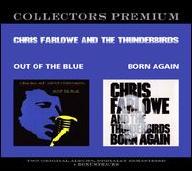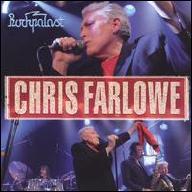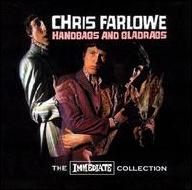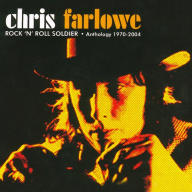In 1966, with his EMI contract up, Farlowe was snatched up by Andrew Oldham, who knew a thing or two about white Britons who could sing RB, having signed the Rolling Stones three years earlier, and put him under contract to his new Immediate Records label. Immediate's history with unestablished artists is mostly a story of talent cultivated for future success, but with Farlowe it was different -- he actually became a star on the label, through the label. His luck began to change early on, as he saw a Top 40 chart placement with his introduction of the Jagger/Richards song Think, which the Rolling Stones later released as an album track on Aftermath. That summer, he had the biggest hit of his career with his rendition of the Stones' Out of Time, in a moody and dramatic version orchestrated by Arthur Greenslade, which reached number one on the British charts. Farlowe had enough credibility as a soul singer by then to be asked to appear on the #Ready, Steady, Go broadcast of September 16, 1966, a special program featuring visiting American soul legend Otis Redding -- he'd covered Redding's Mr. Pitiful on an Immediate EP, and now Farlowe was on stage with Otis (and Eric Burdon), and got featured in two numbers.
That was to be his peak year, however. The subsequent single releases on Immediate, including his version of the Stones' Ride on Baby, failed to match the success of the first two singles, and he last charted for Immediate with Handbags and Gladrags, written for him by Manfred Mann's Mike d'Abo. The label, always in dire financial straits, tried repackaging his songs several different ways on LP, but after 1967 his recording career was more or less frozen until the label's demise in 1970. After that, Farlowe's story became one of awkward match-ups with certain groups, including the original Colosseum on three albums, and Atomic Rooster (post-Carl Palmer). Following a car accident that left him inactive for two years, he made an attempt at re-forming the Thunderbirds in the mid-'70s, and Out of Time kept turning up in various reissues, but he saw little new success. Farlowe was rescued from oblivion by his better-known contemporary (and fellow Immediate Records alumnus) Jimmy Page, appearing on the latter's Outrider album in the '80s, which heralded a BBC appearance that brought him back to center stage in the public consciousness for the first time in two decades. Farlowe followed this up with new albums and touring with various reconstituted '60s and '70s groups, and although he never saw another hit single, his reputation as a live performer was enough to sustain a career -- nor did the release of his #Ready, Steady, Go appearance with Otis Redding on videotape and laser disc exactly hurt his reputation; indeed, that was the first time many Americans appreciated just how serious a following he'd had in England. His recent albums, including The Voice, have gotten respectable reviews, and his Immediate Records legacy was finally getting treated properly in the 21st century, as well. Along with Manfred Mann's Mike d'Abo and Paul Jones, Farlowe remains one of those voices from 1960s England that -- with good reason -- hasn't faded and simply won't disappear. ~ Bruce Eder, Rovi


















